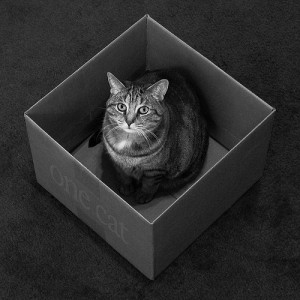Thought Experiments
If you had to go to a party dressed as the last animal you killed, what would you go as? I’d probably go as a newt, or if that newt didn’t die, then I’d be a fruit fly. Schrödinger either would or wouldn’t be a cat, depending on something random.
At least one person has said that much of modern physics is built on thought experiments. Einstein’s thought experiment about chasing a light beam got him to his theory of relativity.
Do you use thought experiments, or something like them, in your writing? Or, another way: how do you make environments using language?
P.S. It isn’t new, but check out “Keats in Space” by Molly Young for a discussion of the fusion of poetry and science. Also, Natalie’s poem “Water Experiment” and the discussion that follows gives you some poetry and science.
Let’s All Love Molly Young

In fact, some of us already do. I know I have linked/mentioned her before, but it feels like this is the right time to make things official, and so I invite everyone to join me in declaring our Official Love of Molly Young. But just what is it that we love? Well…
Here she is at the Poetry Foundation (thanks for the link, Travis), writing on Frederick Seidel.
Like that of Miller and Bukowski, Seidel’s style is one of incriminating self-exposure coupled with an exacting (and therefore imitable) aesthetic. But here’s a funny thing. Writing a poem about lust, pride, imprudence—about ordering a call girl or staying at “literally the most expensive hotel in the world” or racing a bike at 200 mph—has a way of neutralizing the unpleasantness of that vice. To write a good poem about an ugly thing, as Seidel does often, is not to write an ugly poem.
And on Richard Holmes’s The Age of Wonder.
Romanticism as a cultural force, Holmes points out, is generally regarded as “hostile to science, its ideal of subjectivity eternally opposed to that of scientific objectivity.” Yet both pursuits followed the same imaginative principles and notions of wonder that fueled their advancements, and it is Holmes’s contention that a Romantic science exists in the same sense as a Romantic poetry, and both flourished during what he calls the Age of Wonder.
You can also find her all over This Recording, and n+1 (including “Kickstart my Heart,” the adderall in the Ivys piece, and a more recent double-review of Playboy: The Complete Centerfolds and a Hefner biography) and she tumbles! And she collaborates on art books. The new one is called TROUBLESHOOTING . It also says she blogs for Urban Outfitters, but I didn’t actually click that one. Instead I clicked on “Rules on Writing” at More Intelligent Life. And now I know the rule: which is there is no rule, which is just what I’d always hoped. Molly!

